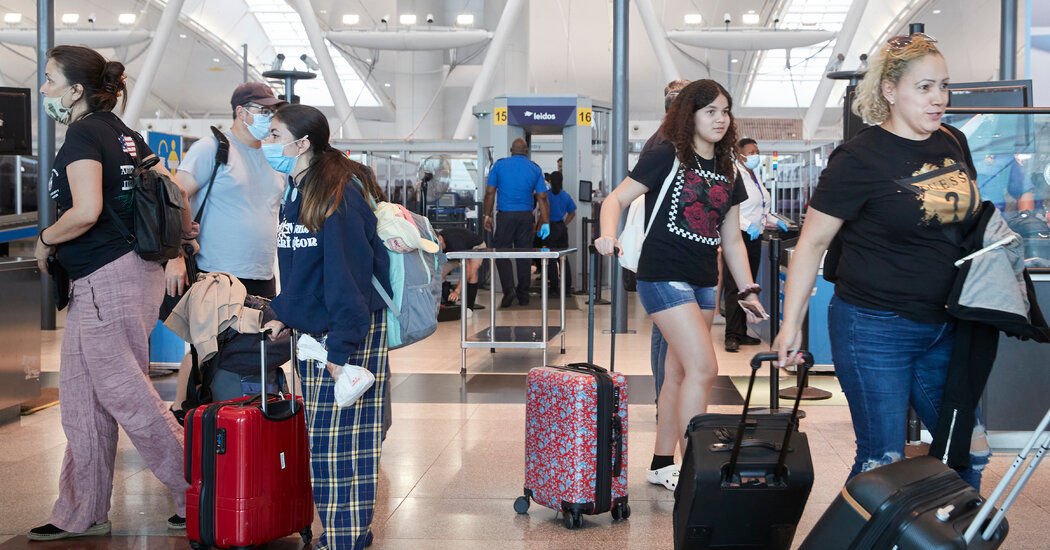Amid an infuriating summer for air travel, the Department of Transportation is proposing changes to federal policy that guide flight refunds, providing more recourse for passengers when airlines cancel flights or significantly alter a flight’s schedule, route or seat categories.
The rule, which the agency will decide on after a 90-day public comment period closes, would also require U.S. carriers that received pandemic aid to issue a full refund if a passenger chooses not to travel because of certain coronavirus-related factors, such as a country shutting down to nonessential travel.
“This new proposed rule would protect the rights of travelers and help ensure they get the timely refunds they deserve from the airlines,” said Pete Buttigieg, the transportation secretary, in a statement on Wednesday announcing the proposal.
Under the current Department of Transportation policy, airlines are already supposed to reimburse passengers for flights that have been canceled or “significantly changed.” But carriers have been accused of exploiting both the ambiguity around the term “significantly changed” and the fact that many air travelers do not know that they are entitled to refunds, instead of credits, for canceled flights.
The proposed policy defines “significantly changed” as a three-hour delay for a domestic flight and a six-hour delay for an international flight. The new rule would also entitle passengers to full refunds for any switch in the departure or destination airport, the addition of a layover or a change in aircraft that causes a significant downgrade in seat class. This week, several Democratic senators, including Ed Markey and Elizabeth Warren, both of Massachusetts, introduced a bill with similar protections.
Read More on the Coronavirus Pandemic
Air travel for many has been frustrating throughout the pandemic, but over the past year the number of delays and cancellations has increased, affecting thousands of passengers eager to travel after two years of restrictions and closures.
Around 20 percent of flights on U.S. carriers have been delayed this year, 6 percent more than the airlines’ performance over the previous two years, according to FlightAware, a flight-tracking company. On high-travel weekends, airlines have canceled flights four times as often as they did in 2019.
Many stranded or delayed travelers have complained about the tortuous process required to obtain refunds.
“It’s theft, basically,” said Kathryn T. Jones,…
Click Here to Read the Full Original Article at NYT > Travel…
